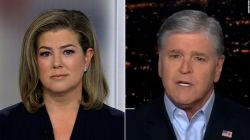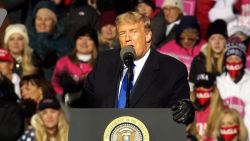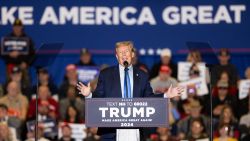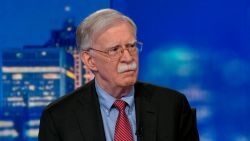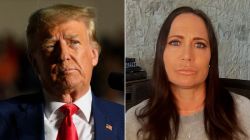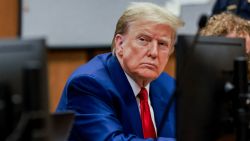It is no longer surprising when President Donald Trump fuels a conspiracy theory online, as he did over the weekend with regard to the apparent suicide of multimillionaire financier and accused sex trafficker Jeffrey Epstein.
This is the man who built a political career by fanning the fringe of American politics with fevered insinuations or allegations, including, but not limited to the baseless theories that:
- Barack Obama wasn’t born in the US
- A rival’s father was in on the John F. Kennedy assassination
- The 2016 presidential election was rigged against him even though he won
- Millions voted illegally for Hillary Clinton
- The US government spied on his campaign
- There’s a deep state of bureaucrats organized against him
- The special counsel appointed by his Justice Department was actually a witch hunt organized by Democrats
He’s done a bang-up job on Twitter using the term “fake news” as a weapon against media organizations that deal in reporting and fact. And the ultimate irony is that he so often misleads his followers with fiction.
His latest trip into fantasy comes after the death of Epstein in a federal jail cell in New York.
Trump pushed a quick-moving conspiracy theory online that maybe the Clintons, his old nemeses, were involved. Never mind that as US President he’s got more to do with oversight of New York’s Metropolitan Correctional Center, a federal facility, than a former President and Secretary of State.
White House counselor Kellyanne Conway defended her boss on Fox News Sunday, arguing that Trump simply wanted a thorough review of Epstein’s case.
“I think the President just wants everything to be investigated,” she said, referring to a defamation suit unsealed Friday against Epstein by Virginia Roberts Giuffre, who has claimed that Epstein kept her as a teenage “sex slave.”
Angel Ureña, a spokesman for Bill Clinton, responded Saturday to Trump’s amping of the conspiracy theory saying, “Ridiculous, and of course not true — and Donald Trump knows it.”
From a strategic level,Trump would love to make as many political conversations about Hillary Clinton as possible. He beat her in 2016 – despite not winning the popular vote – and likes to talk about it whenever possible. He still smarts that his Justice Department hasn’t moved to investigate her more. He did, after all, threaten to jail her if he won the presidency.
Candidates warn of Trump’s efforts to distract
Democrats who want to challenge Trump in 2020 saw a clear strategy in Trump’s tweet. Former Rep. Beto O’Rourke, an El Paso, Texas, native who wants immediate action to address gun violence, said on CNN that Trump was trying to, “force you and me and all of us to focus on his bizarre behavior, instead of the fact that we just lost 22 people in this community, nine people in Dayton, Ohio, we’re seeing an epidemic of gun violence every single day in this country.”
Sen. Cory Booker, another Democratic candidate, pointed out on CNN’s “State of the Union” with Jake Tapper that Trump seems to keep returning to baseless claims about the Clintons and called his tweet “reckless.”
He said the tactic of spreading false information was reminiscent of Russian efforts to interfere in US elections.
Beyond the issue of gun violence are allegations by the Democratic presidential candidates that Trump has participated in a divisive political environment that has enabled white supremacists. It was a white supremacist who published a racist screed who opened fire at a Walmart in the border city of El Paso last week, killing 22 Americans and Mexicans.
Paranoia into policy
Tweeting about a conspiracy theory may have changed the conversation, but at what cost to Trump? There’s danger in applying strategy to Trump’s whims on Twitter. Far from paying a price for pushing such distortions and lies, however, he has been rewarded with the White House.
Now, the same type of fact-free hunches that he pushes about his rivals are finding their way into his efforts to lead the country.
He’s the President turning paranoia into policy.
Where many Americans see immigrants living among them, raising families, attending schools, Trump sees an army of invaders threatening the US.
Where many lawmakers on both sides of the political aisle have great confidence in the US intelligence community, Trump sees an apparatus “run amok.”
Where many economists see an independent Federal Reserve as an important part of a free economy, Trump sees unaccountable policymakers trying to ruin his presidency, and he tries to pressure them to lower interest rates.
Where many people see the US as a the world superpower with an interest in free trade and friendly relations, Trump sees a nation turned into a sucker, forced by leaders from both parties to give too much away to other countries – the latest example is his frustration with China.
Under normal circumstances, most Americans might be predisposed to trust the Pentagon over North Korea. But not Trump.
He feels he has a relationship with the North Korean dictator Kim Jong Un, so he has sided with Kim on the issue of military exercises between the US and South Korea on the Korean Peninsula. Trump said on Twitter Saturday that Kim wrote to him complaining about the joint tests. Trump, in turn complained about his own military’s exercises, which he described as expensive. In a separate tweet, Trump bought Kim’s excuse that short-range missile testing by North Korea would end once the exercises did.
Americans would similarly, under normal circumstances, trust the US intelligence community over Russia’s Vladimir Putin. But not Trump, as has been demonstrated repeatedly.
He’s currently in the midst of house-cleaning at the Office of the Director of National Intelligence, where the top two officials have resigned.
He’s in the midst of a longer-term house-cleaning at the Department of Homeland Security, where he’s complained of officials not tough enough on immigration.
Most Americans, according to polls, would disagree with Trump on many issues.
One of Trump’s first big political conspiracies was to push the idea that Barack Obama was not born in the US. (Obama was born in Hawaii.) That was a major issue for Trump and, according to polling, it was never a majority of Americans who agreed with him, although a surprising number of Republicans, at times, shared that view.
On immigration, the issue Trump talks most about, the majority of Americans (62% in a July Pew Research Center poll) said America’s openness to immigrants was essential to its identity. Only a third – 33% – said if the country is too open it risks losing its identity as a nation, according to that poll.
But it’s important to note that Pew has asked this question for several years and the country has moved to a more xenophobic stance during the Trump era. Less than 30% thought the country could lose its identity when the question was asked in 2017. And less than half of Republicans felt that way. Now, it’s 57% of Republicans, which suggests Trump’s repeated rhetoric can have an impact. And that’s an important thing to keep in mind as he pushes fanciful theories that have no basis in reality.












